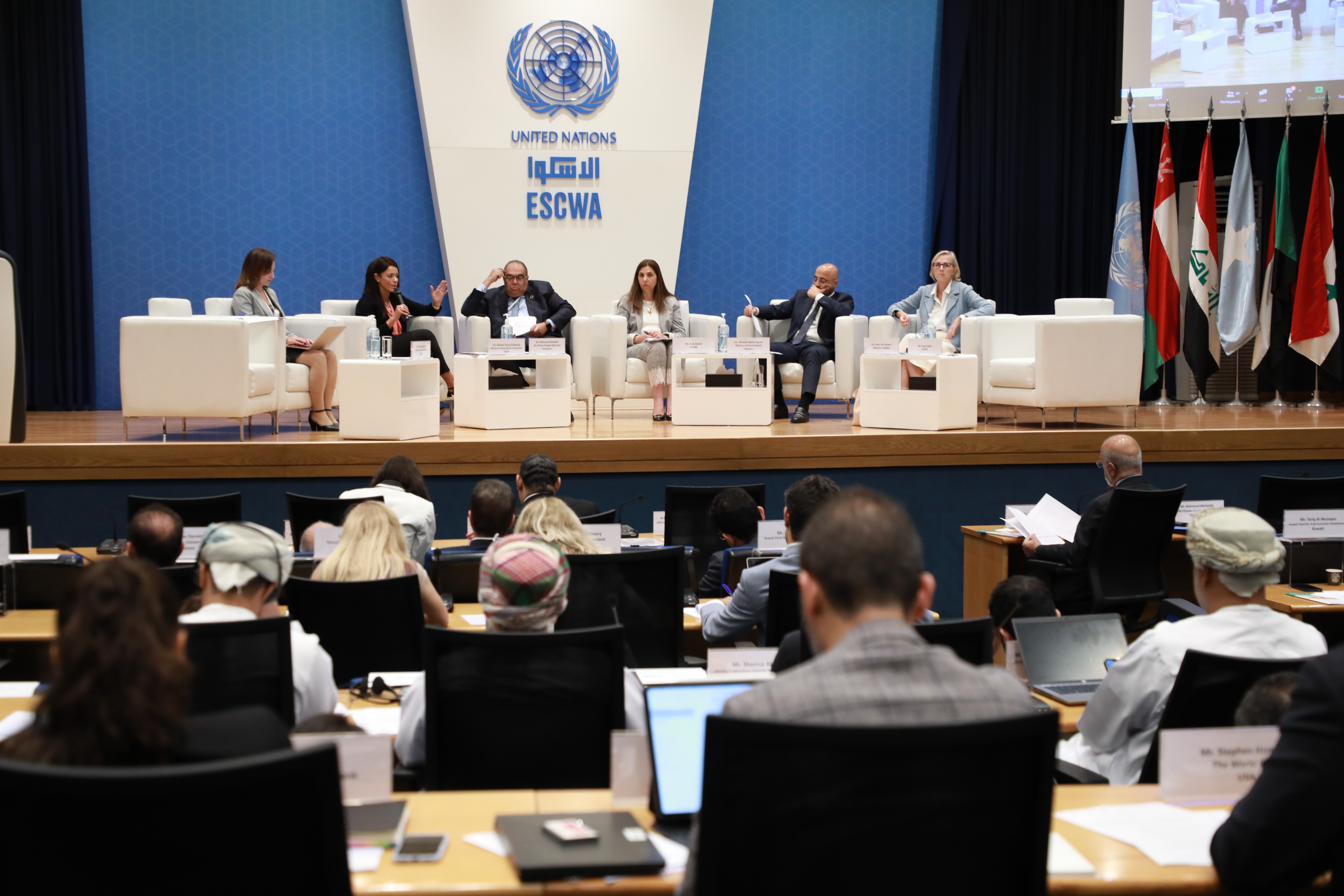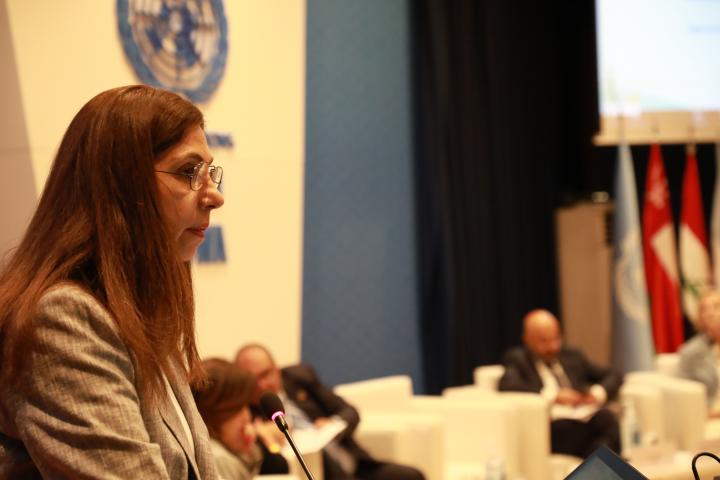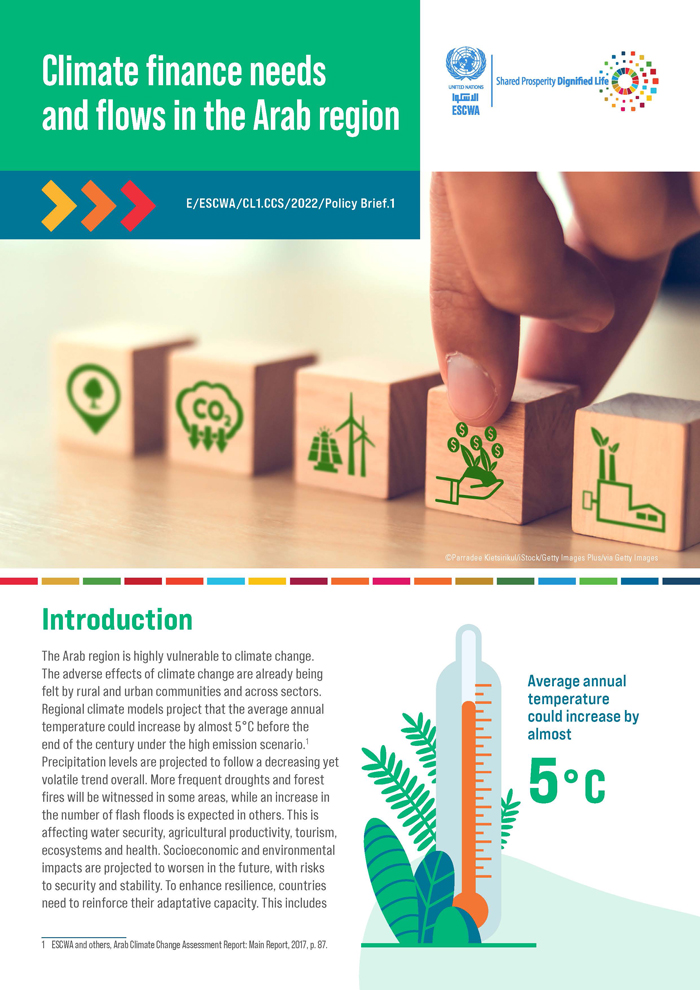
ESCWA is hosting the Arab Regional Forum on Climate Initiatives to Finance Climate Action and the Sustainable Development Goals (SDGs), one of five regional forums being organised by the Egyptian Presidency of the 2022 United Nations Climate Change Conference of the Parties (COP 27), the UN Climate Change High-level Champions, and the five United Nations Regional Commissions.
The Arab Regional Forum explores the climate finance needs of Arab States for ensuring water, energy and food security under changing climate conditions. Bankable projects that can accelerate climate action are being showcased by member States, as well as innovative forms of finance and regional initiatives that can create opportunities for private sector investment, blended finance and bilateral support. The Forum:
- Facilitates engagement with a broad set of partners and stakeholders to accelerate public and private investment mobilization and blended finance opportunities around concrete projects and initiatives;
- Identifies synergies and entry-points for climate finance to support the acceleration of access to clean energy, energy efficiency technologies as well as means for ensuring water and food security, which remain key catalysts for the attainment of the SDGs as well as mitigation and adaptation goals in the Arab region;
- Connects institutional investors, private sector financiers and development partners with governments and brokers dialogues around co-creating investment opportunities in support of regional priority actions.
Representatives of the public and private sectors and the international development community are invited to participate.
You can watch the live stream of the Opening Ceremony on Youtube.



